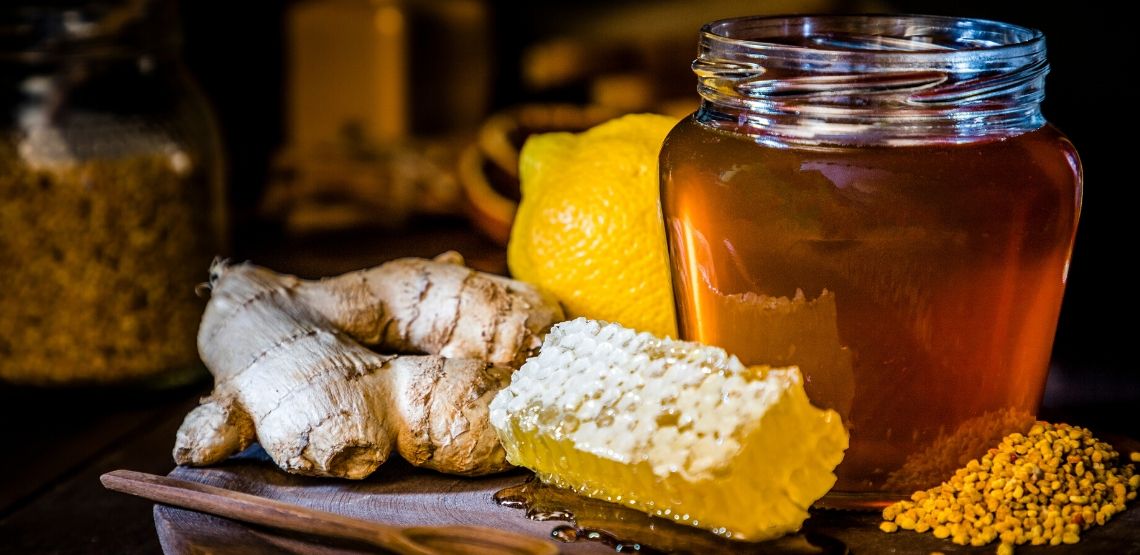Natural Remedies for Chest Congestion
Cozy scarves, fresh snow and holiday festivals are all perks of winter, but one downfall is the chest congestion that can accompany colder temperatures. Luckily, natural remedies for chest congestion are effective.
Though it is triggered by colder temperatures, chest congestion is a common health woe that can strike any time of the year. Chest congestion can last for weeks and can lower your quality of life long after you have gotten over the initial cold or sickness that started it.
Luckily, you do not have to suffer with chest congestion as there are a bevy of natural remedies that do not require a prescription and can help you to beat it, so you can get back to doing what you enjoy.
What Causes Chest Congestion?
Chest congestion in general refers to a tightness in the chest caused by inflamed airways and is often accompanied by shortness of breath.
A persistent cough usually accompanies congestion. It can be dry, raspy or mucus-producing. If you suffer from asthma, chest congestion can be even more severe and long-lasting, since airways are already inflamed compared to healthy lungs.
The following are common causes of chest congestion:
- Flu
- Asthma
- Allergies
- The common cold
- Pneumonia
- Bronchitis
Other severe conditions such as cystic fibrosis, lung disease, or COPD can also cause more chronic chest congestion.
The Best Natural Remedies for Chest Congestion
While there are many over the counter remedies to break up mucus or suppress a cough, these typically only provide temporary relief.
As an alternative, trying some or a combination of these natural remedies to provide substantial relief for your chest congestion.
Honey
One of nature’s most powerful medicines, honey is brimming with antioxidants and can sooth a cough more effectively than an over the counter medicine or cough syrup. If your congestion is brought on by allergies, an added perk of honey is its ability to heal allergies over time. Add a teaspoon to tea several times per day or take plain as you would cough syrup. Be sure not to give it to children younger than 12 months of age.
Related Search Topics (Ads)
Steam
The heat and humidity from steam can help open airways, which will break up the mucus in your lungs, improving congestion. Turn your bathroom into a steal room by letting the shower run hot and closing the door.
Another way to use steam is by boiling a pot of water on the stove and leaning over it (just be careful not to get too close) and placing a dish towel around your head to channel the steam into your airways. Add a couple drops of essential oils like peppermint or eucalyptus to the pot of water or to your shower for an extra soothing, spa-like experience.
Using a humidifier is another effective remedy to add moisture into the air of your home. This helps to open airways and helps you to breath more deeply. You can leave them running overnight near your bedside table and add a few drops of essential oils to the container for added benefits.
Stay Hydrated
The power of water really cannot be exaggerated. When you are dealing with chest congestion, it is even more essential to hydrate yourself more than usual, since the water make the mucus thinner and will help prevent it from becoming a full-blown infection like bronchitis. Aim for at least half your body weight in ounces and try hot tea or broth if you get tired of plain water.
Try Turmeric
A known benefit of turmeric, a superfood for many ailments, is its ability to act as a natural expectorant. It has been shown to provide benefits in treating asthma, allergies and warding off lung infections, not to mention boosting immunity in general. For maximum absorption of benefits, try making golden milk with plant-milk, coconut oil, a bit of cinnamon, agave syrup or honey, black pepper, and turmeric root or powder.
Add Herbs and Spicy Foods
Foods like ginger, garlic, peppers, wasabi and salsa are natural and often very effective options for easing congestion and opening airways. Ginger can be enjoyed in food or in tea to sooth the digestive and respiratory tracts, and to reduce inflammation. Garlic acts as a powerful, natural anti-viral and anti-bacterial food. Spicy foods provide immediate relief when congested and can open inflamed airways and help clear the sinuses.
Gargle Salt Water
A basic and easy remedy is to mix one tablespoon of plain salt in warm water and gargle for a few minutes. You can do this multiple times a day to ease the inflammation of your throat, which is likely irritated from your cough. The salt helps to draw mucus out of the chest and throat tissue, and can also help clean the throat much like a natural anti-bacterial mouthwash.
When to See a Doctor
These natural remedies can go a long way in easing your chest congestion but should not stand in for medical care from your doctor if symptoms persist or worsen.
If you find yourself with other symptoms such as a fever or swollen glands, it is best to book an appointment to see your health care provider. Other signs to look out for are worsening cough and congestion, or mucus that is dark yellow or green in color, which is a telltale sign of an infection that could require antibiotics.


